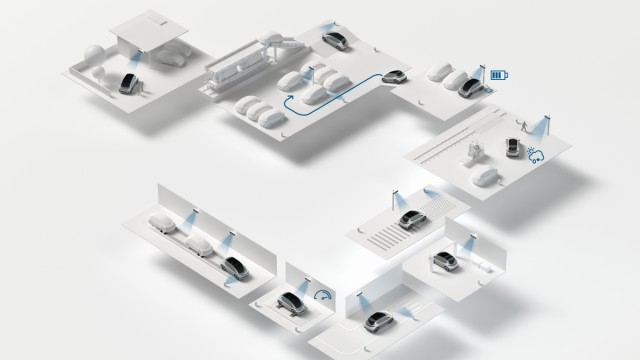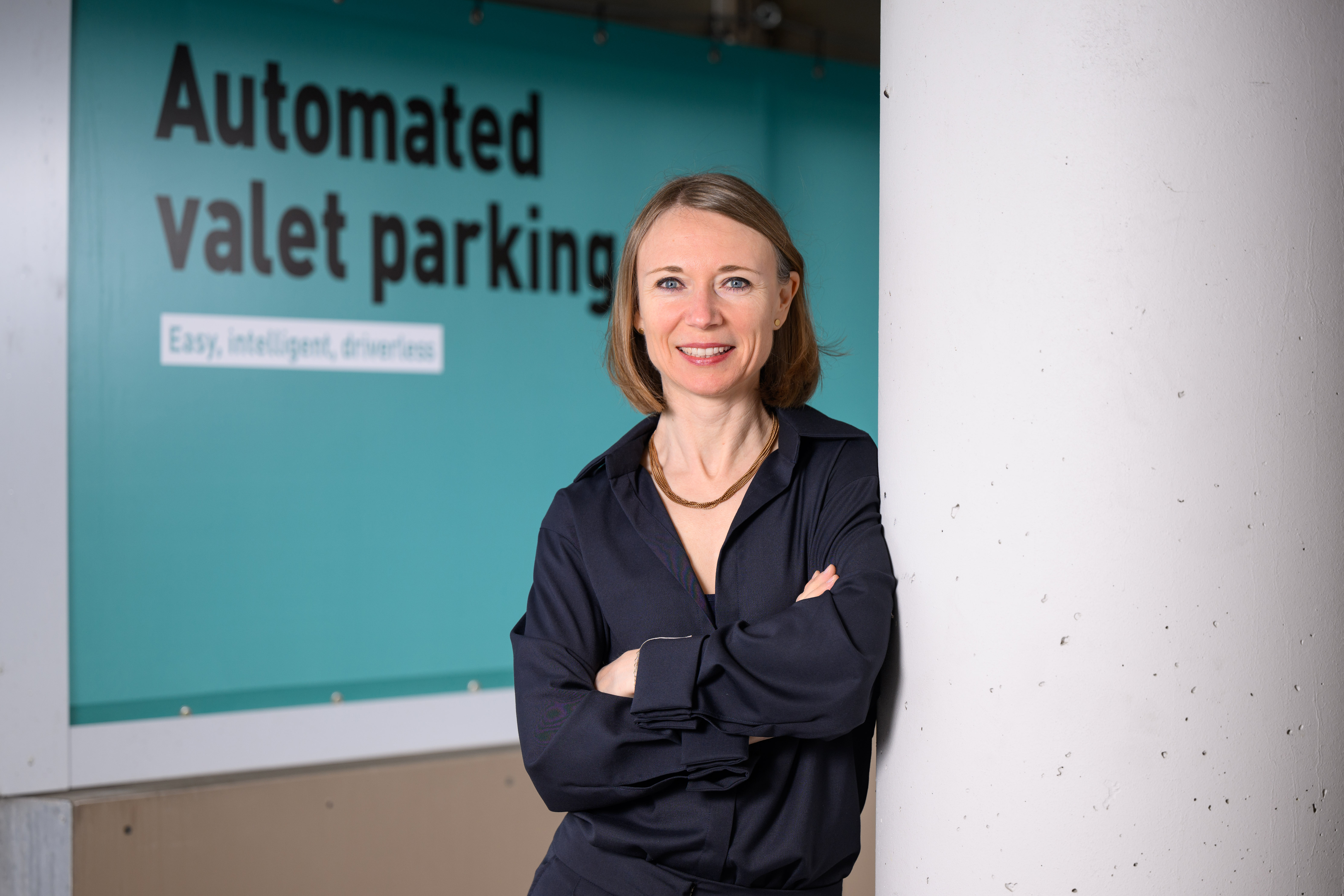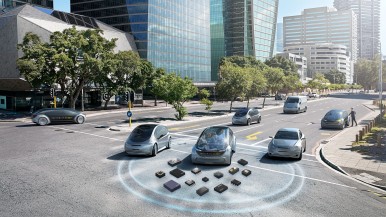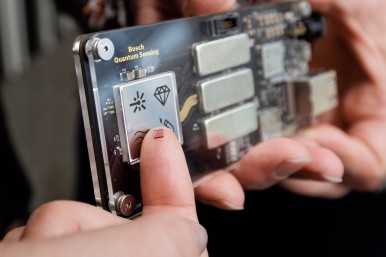Stuttgart, Germany – Getting vehicles from the assembly line to the test bench without a driver will soon be a realistic alternative. The automated vehicle maneuvering solution developed by Bosch significantly optimizes automotive production processes while also increasing safety. Automakers can finally get to grips with challenges such as the tight maneuvering of vehicles on the shop floor, downtimes in production due to absent drivers, accidents or damage caused by collisions, and a lack of information on where vehicles are located in the plant. Based on its automated valet parking system, Bosch equips the automaker’s plant with a lidar-sensor infrastructure, which it supplements, where required, with Bosch stereo cameras. The information generated by the sensors is fed into edge computers, and smart algorithms tell the vehicle which route to take. In this way, Bosch makes it possible for vehicles to maneuver without drivers – even where space is tight. Smart technology installed in the plant keeps the technical requirements in the vehicle itself to a minimum.
Contact person for press inquiries:
Jennifer Kallweit
Phone: +49 711 811 42239
Jennifer.Kallweit@de.bosch.com
Twitter: @JCKallweit
Mobility is the largest Bosch Group business sector. According to preliminary figures, it generated sales of 55.9 billion euros in 2024, and thus contributed around 62 percent of total sales. This makes the Bosch Group one of the leading mobility suppliers. Bosch Mobility pursues a vision of mobility that is safe, sustainable, and exciting. For its customers, the outcome is integrated mobility solutions. The business sector’s main areas of activity are electrification, software and services, semiconductors and sensors, vehicle computers, advanced driver assistance systems, systems for vehicle dynamics control, repair-shop concepts, as well as technology and services for the automotive aftermarket. Bosch is synonymous with important automotive innovations, such as electronic engine management, the ESP anti-skid system, and common-rail diesel technology.
The Bosch Group is a leading global supplier of technology and services. It employs roughly 417,900 associates worldwide (as of December 31, 2024). According to preliminary figures, the company generated sales of 90.5 billion euros in 2024. Its operations are divided into four business sectors: Mobility, Industrial Technology, Consumer Goods, and Energy and Building Technology. With its business activities, the company aims to use technology to help shape universal trends such as automation, electrification, digitalization, connectivity, and an orientation to sustainability. In this context, Bosch’s broad diversification across regions and industries strengthens its innovativeness and robustness. Bosch uses its proven expertise in sensor technology, software, and services to offer customers cross-domain solutions from a single source. It also applies its expertise in connectivity and artificial intelligence in order to develop and manufacture user-friendly, sustainable products. With technology that is “Invented for life,” Bosch wants to help improve quality of life and conserve natural resources. The Bosch Group comprises Robert Bosch GmbH and its roughly 470 subsidiary and regional companies in over 60 countries. Including sales and service partners, Bosch’s global manufacturing, engineering, and sales network covers nearly every country in the world. Bosch’s innovative strength is key to the company’s further development. At 136 locations across the globe, Bosch employs some 86,900 associates in research and development, of which nearly 48,000 are software engineers.
Additional information is available online at www.bosch.com, www.iot.bosch.com, www.bosch-press.com.






